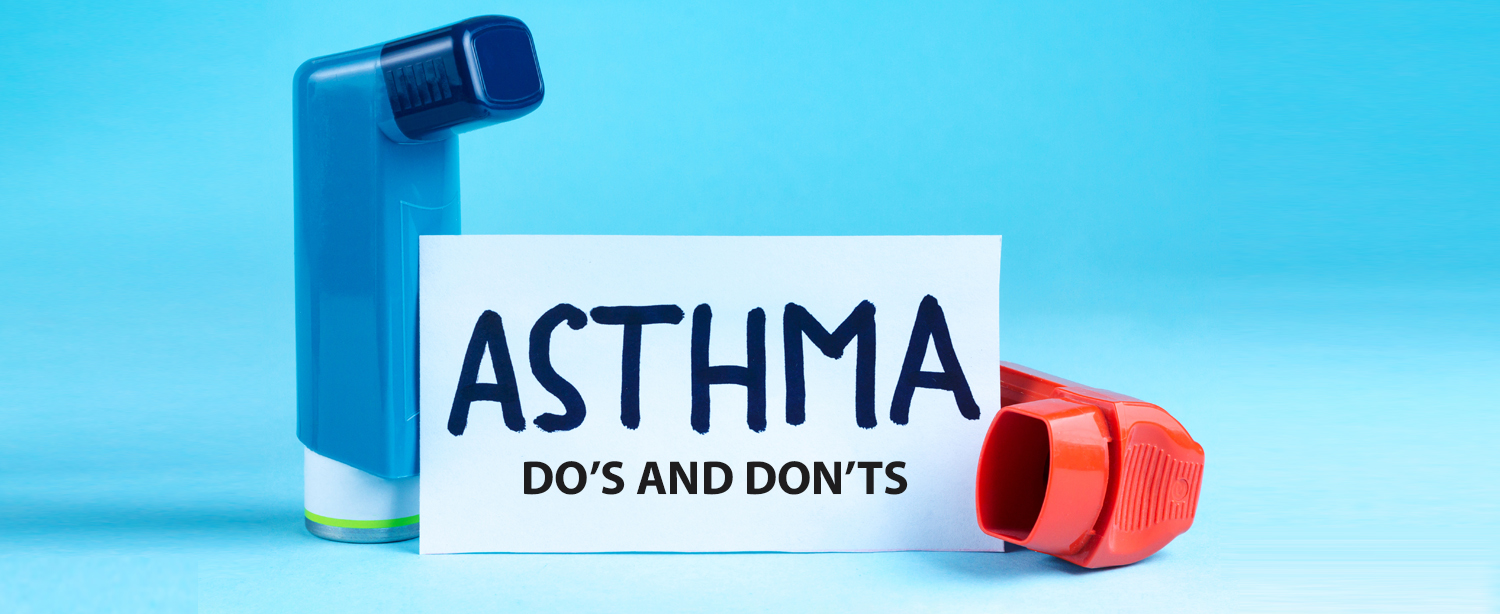Asthma is a chronic respiratory condition that affects many people around the world. 3.4 crore Indians suffer from this respiratory condition contributing to around 11.1 per cent of the global asthma burden. It is a condition that causes the airways to become inflamed and narrow, making it difficult to breathe. Wheezing and shortness of breath are brought on by the irritated and constricted airways that result from the inflammation, which makes it difficult for air to enter and exit the body. Additionally, due to the inflammation, the airways produce mucus, which leads to coughing and obstructs airflow. Patients with asthma frequently experience abrupt bouts of shortness of breath and breathlessness. While there is no cure for asthma, there are steps that asthma patients can take to manage their condition and reduce the risk of asthma attacks.
Symptoms of Asthma
Asthma symptoms can be seen in childhood or can also be detected later in life. Most asthma patients rely on inhalers to get instant relief from asthma attacks. The typical symptoms of asthma include:
- Wheezing
- Troubled breathing
- Shortness of breath
- Panting
- Cough with or without mucus
Common Asthma triggers
Asthma patients must evaluate and find out what makes their asthma worse and what triggers its symptoms. Here are some common asthma triggers:
- Common infections such as cold, cough
- Pollens and moulds
- Stress
- Allergies to animals like cats or dog
- Allergy to dust mites
- Certain medications
- Fumes from paints and solvents
- Feathers and foams
Asthma Precautions
During an asthma attack, it is essential that patients use medications on time. Patients should avoid physical exertion and make sure they are not alone when having an asthma episode. The patient’s condition will get worse if they panic when they are having an episode. Patients with asthma must always have their inhalers close at hand so they may use them in case of an attack and stop their asthma or other respiratory conditions from growing worse. Here are some dos and don’ts for asthma patients to help manage their condition better:
Do’s for asthma patients
Asthma patients must:
- Identify and avoid triggers
- Keep a written asthma action plan
- Maintain a healthy sleep routine
- Stay active
- Eat a health and balanced diet
- Keep the house clean and dust free
- Try and stay in pollution free environment
- Regularly consult the doctor
- Keep inhalers handy
- Take medicines as prescribed
Don’ts for asthma patients
- Do not disrupt your regular routine
- Refrain from smoking and drinking
- Do not overeat or have spicy food
- Do not forget to take medications on time
- Don’t delay seeking care for asthma attack
- Don’t forget to clean your inhaler
- Don’t use scented products
Asthma is a chronic respiratory condition that requires ongoing management. By following these dos and don’ts, asthma patients can help manage their condition and reduce the risk of asthma attacks. Remember to always consult your doctor before making any changes to your asthma treatment plan. With proper management, people with asthma are able to lead active and healthy lives.
Asthma treatment at Kokilaben Dhirubhai Ambani Hospital
Asthma symptoms and its severity usually differ from person to person. Consult highly trained and experienced pulmonologists at our Department of Pulmonary Medicine to meet the best asthma specialists in Mumbai. Our team offers a detailed asthma management action plan that helps manage your trigger better and minimize the asthma attacks. We also guide patients with emergency asthma care instructions and proper use of inhalers.


